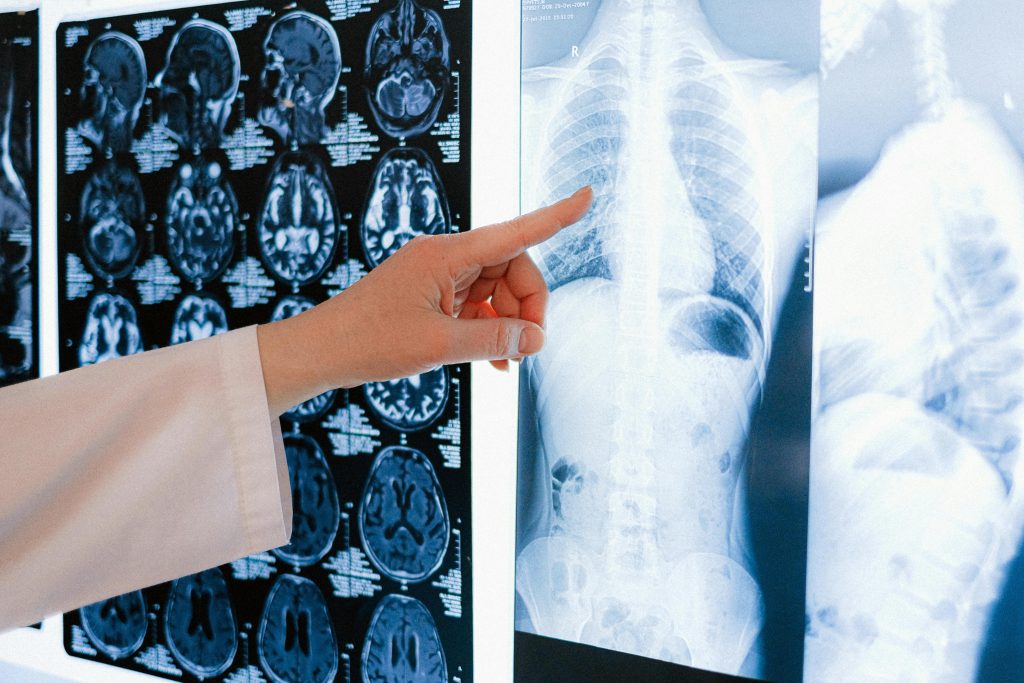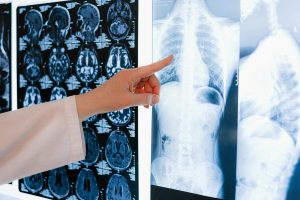About
Osteoporosis is an epidemiological issue that society has been struggling with for a long time. This is a condition that is often difficult to diagnose because the symptoms appear to be silence and cause significant disability. It is also characterized by progressive loss of bone mass and a greater risk of bone fractures. While lifestyle changes and medicine use are the fundamental part of the traditional methods, a growing amount of research claims that functional medicine is more comprehensive, holistic, and individualized to that problem.
In functional medicine a treatment depends of the systems that are affected and goes beyond the symptoms to the root of the illness. Functional medicine practitioners aim at general health preservation and well-being by promoting holistic approach which puts in mind strong interaction between genetic factors, environment and lifestyle.
Understanding the Pathophysiology of Osteoporosis
The multiple causes of osteoporosis, including poor diets, inflammation, hormone imbalance and weak digestive system might have miscellaneous morbidities [1]. Generally, conventional medical techniques directs BMD to use only pharmaceuticals and calcium supplements, aiming to improve the bone density numerically.
To make it clear, from the standpoint of functional medicine, bone health starts to depend on its whole physiological processes and metabolism. The maturation of bone structure and the assimilation of minerals could be significantly interrupted by different reasons for example, chronic inflammatory, oxidative stress, intestinal dysbiosis and altered hormones like estrogen, testosterone, and cortisol [2].
Addressing Nutrient Deficiencies and Gut Health
Deficiencies of some nutrients, namely calcium, magnesium, zinc, all B-complex, K, and D vitamins, have been associated with an increased risk of osteoporosis [3]. Functional medicine gives priority to therapeutic nutrition and specially designed supplements which management can be achieved by this approach.
The human bones too are regulated by gut metabolism. The process of immune system functioning, metabolism that involves bone service and absorption of nutrients are all directed by gut microbiota [4]. Functional medicine therapists may propose some measures including special diet, taking probiotics, and handling the underlying disorders like leaky gut-syndrome or small intestinal bacterial overgrowth (SIBO) in order to hold a good condition of microbiota.
Hormone Balancing and Inflammation Management
Optimizing hormonal communication can be a crucial step for maintaining bone health, particularly for those with pathologies that disrupt estrogen, testosterone, and cortisol. Low estrogen is a concluded cause of osteoporosis and menopause are generally cited as examples [5]. In order to taking care about hormone balance practitioners of functional medicine can use natural or bioidentical hormone replacement therapy(BHRT).
In addition to lowered bone growth rate and augmented bone resorption, chronic inflammation is known to be responsible. The target of a functional medicine approach is to pin down the root causes those are responsible for inflammation which may include exposure to environmental toxins, certain dietary patterns or even chronological disorders such as chronic infections or autoimmune illnesses
Lifestyle Interventions and Stress Management
Lifestyle choices like exercise, noise and stress freezing are unavoidable for healthy bones. Experts on functional medicine give a lot of importance to managing stress using proper methods, sleep patterns, and include weight-gaining exercises among other strategies [7]).
High level of cortisol caused by chronic stress will be the factor reducing bone turnover and increasing the risk of osteoporosis due to this. To give help in dealing with stress and to improve people’s general health, functional medicine experts tend to propose different stress-managing approaches like mindfulness which can be done through relaxation exercises, or cognitive – behavioral therapy
Integrative Treatment Strategies
The approach of functional medicine to osteoporosis treatment is often tailored to the needs of each patient and involves a personalized, multimodal treatment plan. The treatment plans involve illnesses that are the cause of such disease conditions.This might consist of:
- Dietary adjustments: Prioritizing dietary diversity and upgraded food choices scales to nourish the mind whereas nutrient-dense and anti-inflammatory substances (such as curcumin, ginger, etc.) and using differential nutrient suplementation to address any particular nutritional deficit.
- Lifestyle interventions: As a sport, it includes movements like weightlifting, stress management techniques, and improved bedtime habits.
- Targeted supplementation: Some of the minerals, like calcium, magnesium, and zinc, as well as a certain kind of vitamins like D, K, and B- complex, individual requirements depending on condition.
- Hormone balance: If necessary be sure to research natural mechanisms or Bioidentical hormone replacement therapy (BHRT), which helps in hormones balancing.
- Optimizing gut health: Addressing dysbiosis of the gut, leaky gut, or other causes of digestive problems that lead to poor nutrients’ absorption and may affect the bones’ health since that is the source of calcium.
- Inflammation management: highlighting the reasons of inflammation which can be filled with dietary alternations, specific supplementation or some other ways.
- Stress management: Such stress reduction methods might use strategies like cognitive-behavioral therapy, mindfulness drills, meditation, or others.
The goal of functional medicine clinicians is to treat slowing and assisting the bone improvement and thus are using of the alternative approach for re-balancing an organism. The aim of this approach is to develop the bone tissue by reducing or even reversing the pathogenetic processes which lead to osteoporosis.
Conclusion
Because of the complexity of osteoporosis, personalized and comprehensive strategy is required. Functional medicine stands out by diagnosing of the underlying reasons, with the mindset of taking into account rather complex interconnected systems that influence bone health, even though conventional medicine often works successfully in some cases.
Functional medicine professional are committed to achieving sufficient overall wellness as well as to restore a balance in our organism by using targeted supplements, diet modifications, lifestyle interventions, hormone balancing, and good gut health optimization too. This may be the start of deterioration or stop it from further progression. In other words, it may have the opposite effect.
Collaboration with experienced and conscientious healthcare educators is the bedrock of a healing process. One must also seek medical advice from functional medicine specialists who specialize in these types of problems, just as with any other medical ailment. Hope of triumph over osteoporosis can be realized by the people who live in this side of the illness when a plan consisting of dietary changes and holistic treatment is adopted.
References:
[1] Weaver, C. M., Gordon, C. M., Janz, K. F., Kalkwarf, H. J., Lappe, J. M., Lewis, R., … & Zemel, B. (2016). The National Osteoporosis Foundation’s position statement on peak bone mass development and lifestyle factors: a systematic review and implementation recommendations. Osteoporosis international, 27, 1281-1386.
[2] Wawrzyniak, A., & Balawender, K. (2022). Structural and metabolic changes in bone. Animals, 12(15), 1946.
[3] Ahmadieh, H., & Arabi, A. (2011). Vitamins and bone health: beyond calcium and vitamin D. Nutrition Reviews, 69(10), 584-598.
[4] Ni, X., Xing, X., Deng, Y., & Li, Z. (2023). Applications of stimuli-responsive hydrogels in bone and cartilage regeneration. Pharmaceutics, 15(3), 982.
[5] Khosla, S., & Hofbauer, L. C. (2017). Osteoporosis treatment: recent developments and ongoing challenges. The lancet Diabetes & endocrinology, 5(11), 898-907.
[6] Pisani, P., Renna, M. D., Conversano, F., Casciaro, E., Di Paola, M., Quarta, E., … & Casciaro, S. (2016). Major osteoporotic fragility fractures: Risk factor updates and societal impact. World journal of orthopedics, 7(3), 171.
[7] Gómez-Cabello, A., Ara, I., González-Agüero, A., Casajús, J. A., & Vicente-Rodriguez, G. (2012). Effects of training on bone mass in older adults: a systematic review. Sports Medicine, 42, 301-325.
[8] Heer, M., Duda, S., & Fischer, E. (2021). Stress and osteoporosis: Mechanisms and hypotheses. Bone Reports, 14, 100778.








